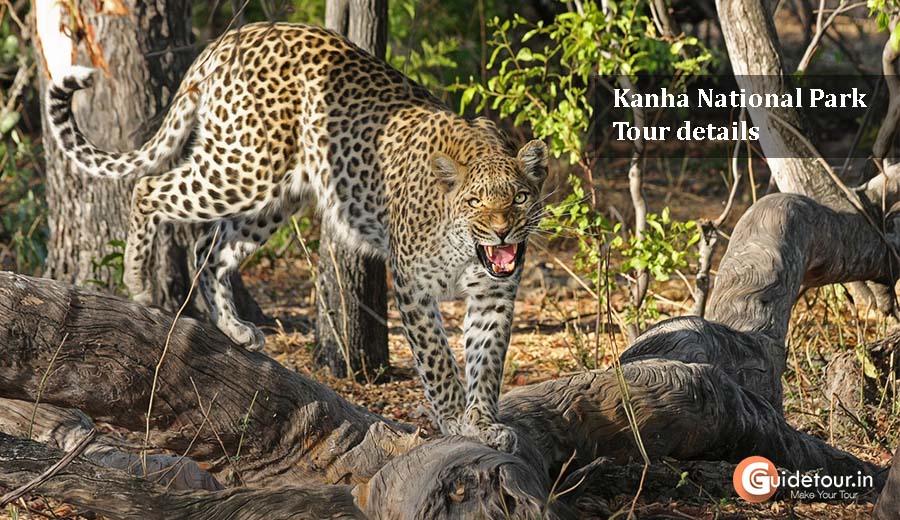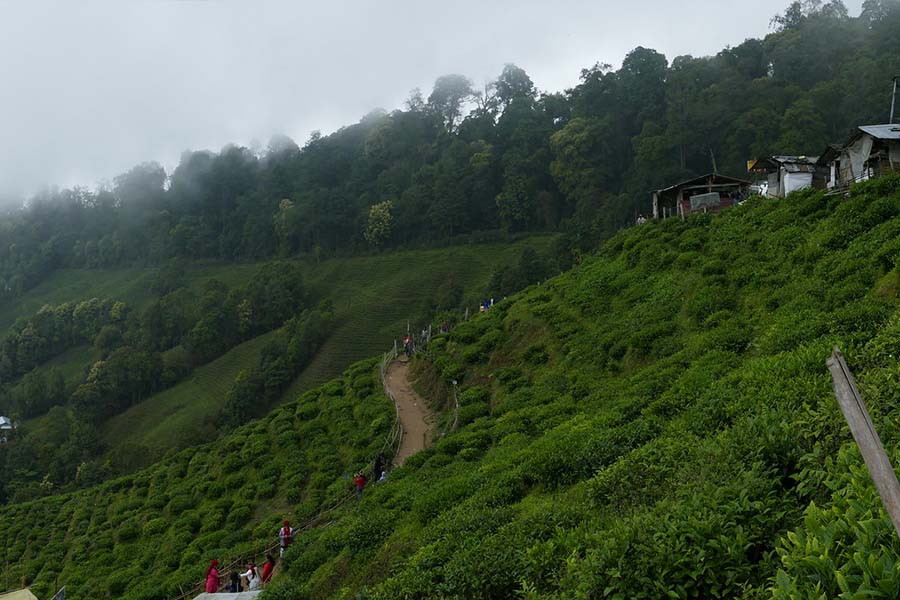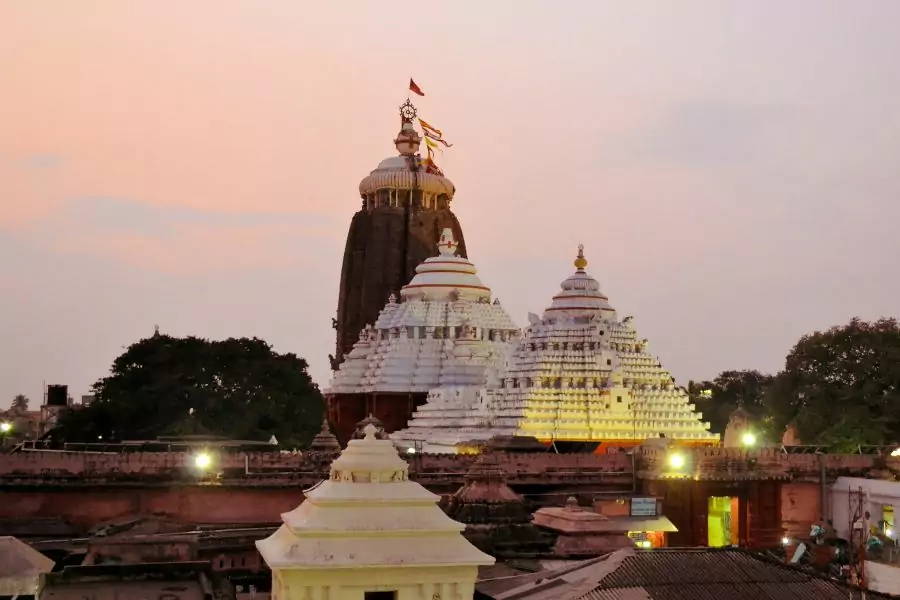Kanha National Park
Introduction of- Kanha National Park
One of the thrilling wildlife sanctuaries in India is Kanha national park which is situated in the Balaghat district of Madhya Pradesh. The place is at a distance of 165 kilometres from Jabalpur. There are two gateways to reach here, the one is Kisli and the other is Mukki. It was established in the year 1955 with an extension of 940 square kilometres. It is best known for tigers and these wild beauties could be often spotted in this forest. Kanha National Park is doing a great job by preserving many endangered species of our nature by giving them a suitable place to survive. A few years ago the swamp dear was almost about to extinct but Kanha’s support has helped them survive and once again these dears are seen bugling the meadows. Grasslands, central maidens and steep rocky escarpments altogether offer a breathtaking atmosphere in the valley.
Wildlife attractions
We have mostly seen tigers in cages or in zoos. But it feels much more adventurous when we see tigers freely moving in an open area. This is somehow a unique experience and a lifetime achievement if we can see such wild beasts crossing the road, or roaring from behind a tree. However natural vegetation of the jungle is not only beatified by the tigers but it involves other wild animals too. Bison, chital, peacock, bear, jackal, hyena, python, and leopard are the major attractions of the forest. You can also watch birds like fowl, herons, rollers, the ring does, kingfishers, drogues, owls, pintails and many more. Kanha National Park is home to almost 270 types of bird species. A museum is there at Kanha that represents the tribal culture and activities of the park. Jeep safaris and elephant safaris are the two options to visit the national park.
Forest safari
Jungle safari is the main and most important activity to do while you are on a visit to Kanha National Park. There are four zones of the forest from where safari into the jungle is controlled: Kanha zone, Kisli zone, Mukki and Sarhi zone. One ticket is allowed for visiting each zone at a time. You cannot visit all the zones with one ticket. Two round of safari is allowed in a day. The tourists entering the forest are taken good care of by the forest guide. Tourists are bound to maintain all the rules and regulations imposed on them. The forest stays closed every Wednesday. Limited numbers of vehicles are allowed for jungle safari.
When you should visit
Summer is very hot as humidity is relatively high near natural vegetation. The temperature during summer ranges between 24 degrees to 41 degrees. Winters are very pleasant and are the best time to visit. The forest remains closed for the entire rainy season which starts in July and ends in mid-October. Although during monsoon the forest is seen in a different view. Still, it is best not to visit there at this time due to the risk of insect bites.
Places to stay in Kanha National Park
You can get full enjoyment of nature if you stay in nature-oriented resorts other than staying in magnificent luxurious hotels. Here are two such types of resorts where you can feel a jungle-like environment.
Wild chalet resort
The picturesque Kanha National Park is famous for its natural beauty and attracts nature lovers from far and wide. Wild chalet resort situated at the banks of river Banjar in Baihar offers a comfortable and secure stay for travellers. The resort is enhanced with cottages and provides all the basic facilities required for a prominent homestay. Modern amenities include comfortable rooms and an in-house restaurant with fabulous Indian, continental and Chinese cuisines.
Kanha jungle lodge
It is located a few meters away from the Mukki entrance gate of the forest which you can reach by just a short walk. The lodge provides visitors with a rewarding and exciting adventure experience. It is just an ideal place for nature-oriented travellers who want to dwell between woods. Nestled in 11 acres of thick Sal forest these hut-type lodges give you a chance to watch the birds all around. So explore nature fully and make your tour a memorable one.
Activity
Visitors to Kanha National Park can engage in several activities, including:
- Wildlife Safaris: The best way to explore the park and spot its diverse wildlife, including tigers, leopards, sloth bears, and many species of deer and antelope.
- Nature Walks: Guided walks through the lush forests of Kanha, where visitors can immerse themselves in the park’s natural beauty and observe its diverse flora and fauna up close.
- Bird Watching: Kanha is home to over 300 species of birds, making it a birdwatcher’s paradise. Visitors can join guided birding tours or explore on their own.
- Jeep Safaris: Off-road Jeep Safaris are also available for a more rugged and adventurous experience.
- Village Tours: Visitors can take a tour of nearby villages to get a glimpse of local culture and traditions.
- Photography: Kanha’s breathtaking landscapes and diverse wildlife make it a photographer’s paradise. Visitors can capture stunning images of the park and its inhabitants.
Safari Timing
Safari timings in Kanha National Park vary depending on the season. Typically, two safari options are available: morning and evening.
- Morning Safari: The morning safari starts at sunrise and lasts until around 11 AM. This is the best time to spot predators like tigers, as they are most active early in the day.
- Evening Safari: The evening safari starts in the late afternoon and lasts until dusk. This is a good time to see other wildlife, including deer and antelope, as they come out to graze in the open meadows.
It is important to note that the timings may change based on park regulations and the time of year, so it is advisable to check with the park authorities or your tour operator before making plans.
Entry fee
The entry fee for Kanha National Park varies based on several factors, including the time of year, the type of vehicle used, and the number of people in the group. Here are the approximate fees for Indian citizens:
- Entry fee per person: INR 40 to INR 60
- Jeep Safari fee per vehicle: INR 2,500 to INR 3,000
- Camera fee: INR 25 to INR 200
It is important to note that the fees may change, so it is advisable to check with the park authorities or your tour operator for the most up-to-date information. Additionally, there may be separate fees for foreign tourists.



